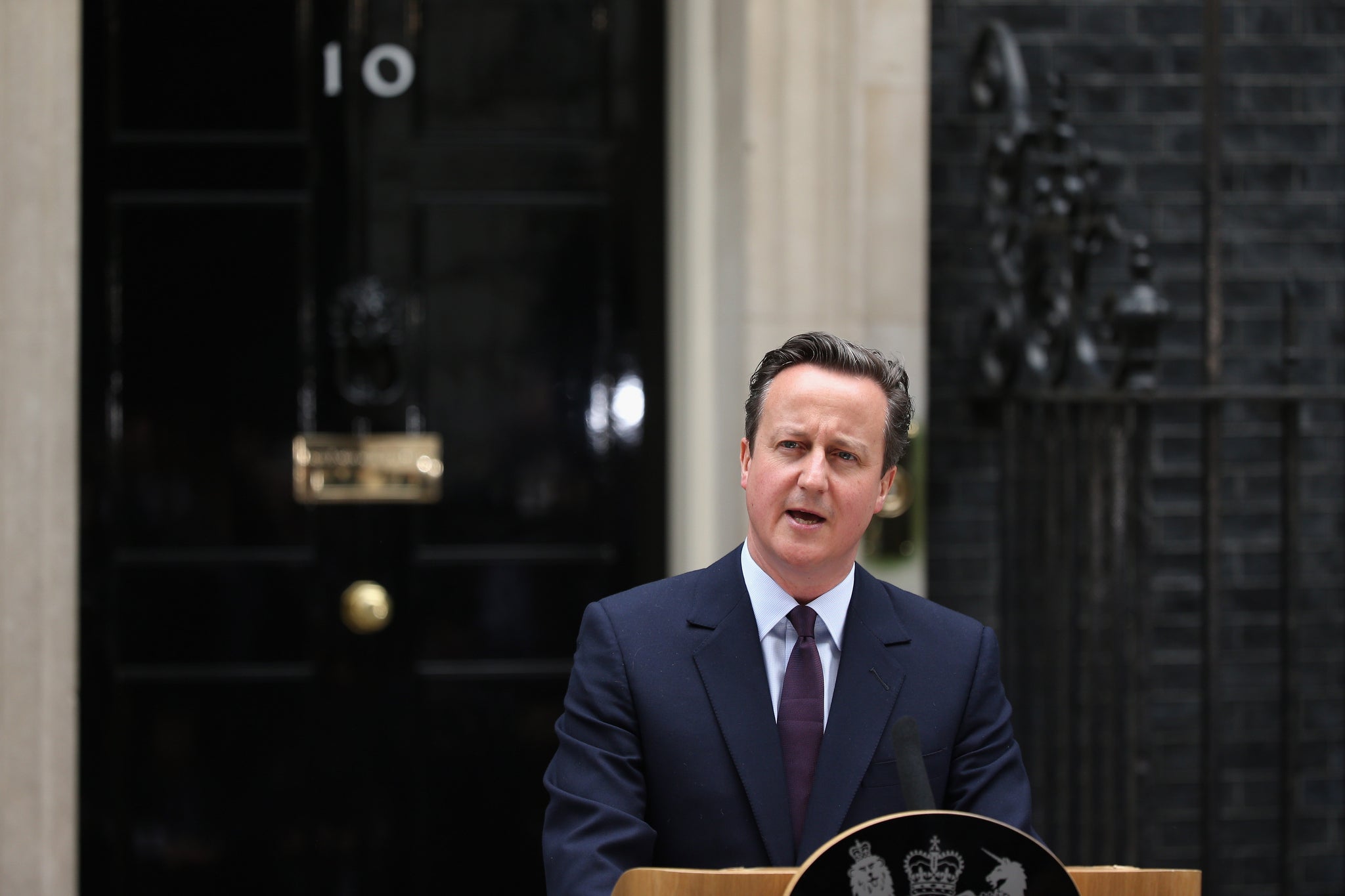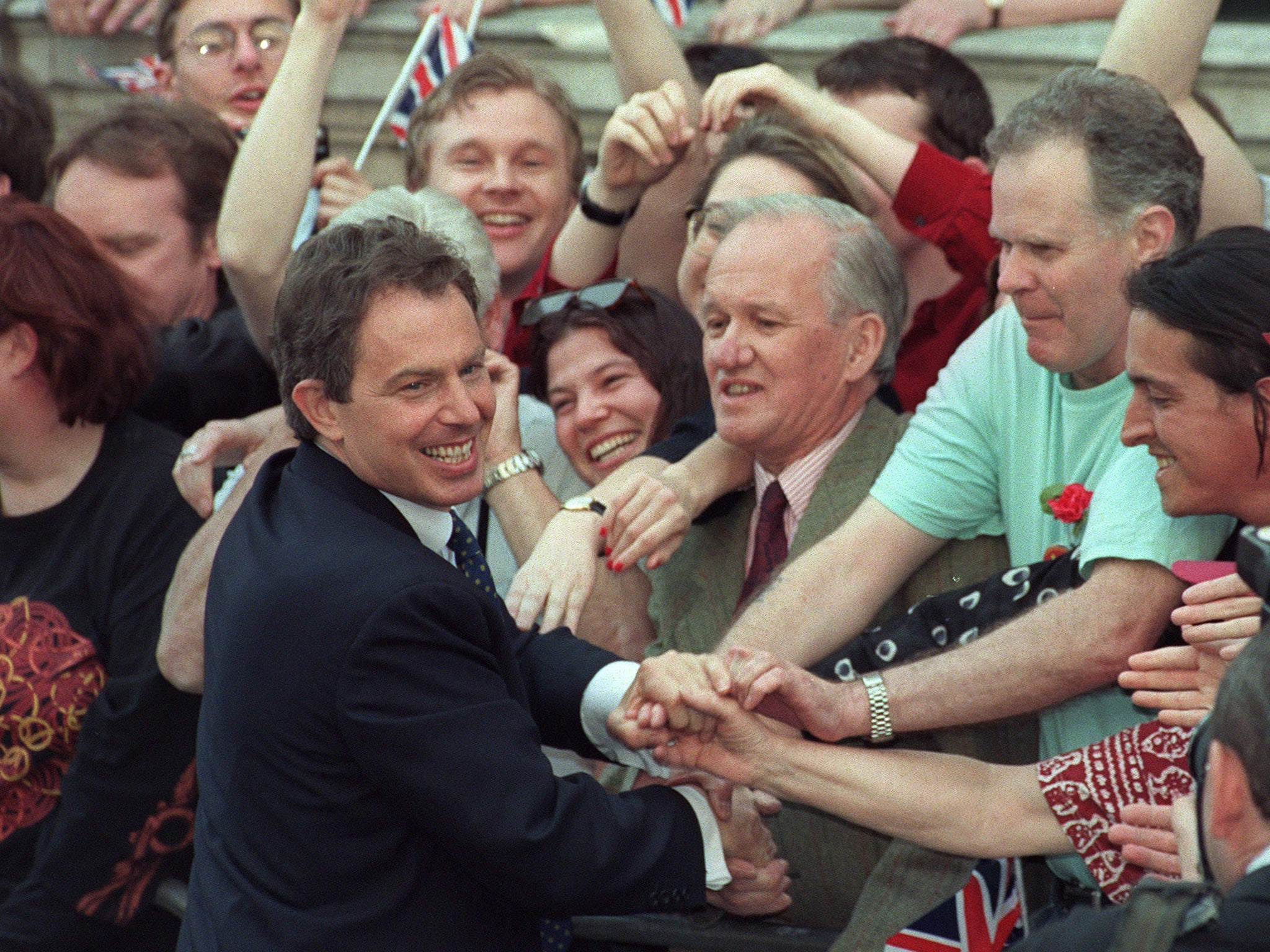Election results: Britain has become a bluer, looser and less liberal country
Like it or not, this was a battle of nationalisms that has left Britain on the brink

Your support helps us to tell the story
From reproductive rights to climate change to Big Tech, The Independent is on the ground when the story is developing. Whether it's investigating the financials of Elon Musk's pro-Trump PAC or producing our latest documentary, 'The A Word', which shines a light on the American women fighting for reproductive rights, we know how important it is to parse out the facts from the messaging.
At such a critical moment in US history, we need reporters on the ground. Your donation allows us to keep sending journalists to speak to both sides of the story.
The Independent is trusted by Americans across the entire political spectrum. And unlike many other quality news outlets, we choose not to lock Americans out of our reporting and analysis with paywalls. We believe quality journalism should be available to everyone, paid for by those who can afford it.
Your support makes all the difference.In the end, the drama did indeed come from the gap between Labour and the Tories. It’s just that it was all about how big the gap was, not how small. It will be a long time before we take pompous pollsters seriously again – though our resident psephologist, Professor John Curtice, was a big winner on the night as the brains behind the exit poll.
Like it or not, this was a battle of nationalisms that has left Britain on the brink. The astonishing surge of the SNP in Scotland has pitted it against a Tory party all but wiped out north of the border, but dominant in England, London aside. For unionists, including this newspaper, that’s bad news.
And so too for believers in progressive politics. Earlier this week, when we published our election leader, it was immediately spun by Tories – whether spin doctors or very senior MPs – as a ringing endorsement of their party. It was anything but. I was clearly naïve in thinking subtlety capable of cutting through the torrent of bile on social media. Crucially, far from declaring “vote Conservative”, as pro-Coalition outlets like the Financial Times and The Economist did, we said nothing of the sort.
On the contrary, we not only criticised the Tories for their record on the poor, young, housing and the NHS, but also specifically said if there was to be another coalition, “we hope it is much less conservative, and much more liberal”. Moreover, we hoped the Union could be saved, and that Britain remained in Europe.
On this sobering Friday evening, it must be admitted that those hopes have been dashed. Conservatives have marched to a majority, and the Lib Dems have been obliterated. There has to be grave doubt that they can survive this. Whoever their leader, many members and voters will conclude they are a social democratic rump which ought to be rehoused within the Labour family. Nick Clegg’s party of social and economic liberalism is dead.
Compared to the stable majority of the last Coalition, Cameron’s tiny majority is a recipe for instability. A referendum on Europe will be distracting, divisive and a considerable risk to business and Britain’s global status. The Prime Minister made overtures to Scotland yesterday, but it would be fair to say he is not a popular man in Scotland, and his disastrous reaction to the referendum last year is a major reason for the SNP surge.
Labour needs a giant, and honesty about its failures. Tony Blair aside, it hasn’t won a majority for 40 years. All the recent evidence suggests British voters prize strong leadership and real security, both national and economic. It is on this prospectus that Lynton Crosby, the Australian strategist, has delivered a decisive Tory win, just as he did before in Australia, New Zealand, and London.

The task for Labour, and indeed all of the left, is to develop modern, progressive policies without postures and language that make it hard for people to vote for these policies. Tories have succeeded in making centrist voters back right-wing policies, including very ugly ones on welfare, immigration, and public spending. The next Labour leader has to make centrist voters support its progressive agenda, while somehow persuading Scotland to take another look. It is a monumental task.
By surpassing expectations, Cameron has acquired authority, an essay-crisis PM who scored another 1st; but the road ahead is harder than the one he’s yet taken, with very sharp reductions in public spending to come from who knows where. His main leadership rival, Boris Johnson, is put on hold, and George Osborne, who ran both Tory strategy and the economy, and who hired Crosby, is again a major contender. He needs to soften his image drastically. Scrapping the spare room subsidy, better known as the bedroom tax, would be a good place to start.
Britain has become a bluer, looser and much less liberal place this weekend. The radical centre ground is ripe for the taking. And it seems to me that everyone who cares about progressive politics needs to think about how they can own it.
Join our commenting forum
Join thought-provoking conversations, follow other Independent readers and see their replies
Comments